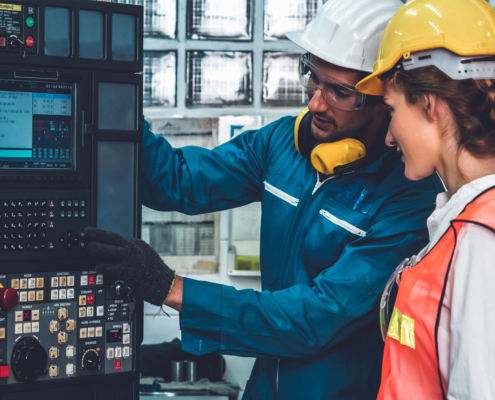 https://www.sbmech.com/wp-content/uploads/2024/09/Group-of-factory-job-workers-using-machine-equipment-in-manufacturing-workshop.jpg
1250
2000
Abstrakt Marketing
/wp-content/uploads/2023/10/cropped-Smith-Boughan_Logo-Formated-Lima-13-1030x269.jpg
Abstrakt Marketing2024-09-24 09:08:182024-11-19 11:07:52Understanding Control in Industrial Maintenance
https://www.sbmech.com/wp-content/uploads/2024/09/Group-of-factory-job-workers-using-machine-equipment-in-manufacturing-workshop.jpg
1250
2000
Abstrakt Marketing
/wp-content/uploads/2023/10/cropped-Smith-Boughan_Logo-Formated-Lima-13-1030x269.jpg
Abstrakt Marketing2024-09-24 09:08:182024-11-19 11:07:52Understanding Control in Industrial MaintenanceCommercial plumbing systems are often taken for granted, but they’re crucial for day-to-day operations. An efficient plumbing system ensures a healthy, comfortable environment and can save you from unforeseen expenses. This article delves into the importance of regular plumbing maintenance, its benefits, consequences of neglect, and best practices for implementing a maintenance plan.
The Role of Commercial Plumbing in Business Operations
Commercial plumbing sustains the day-to-day functions of any business. It supports the comfort of heating and cooling systems and the basic necessities of restrooms and kitchens. In industries like hospitality or services, plumbing issues can directly impact customer satisfaction, highlighting its importance in business operations.
A well-maintained plumbing system also meets health and safety standards, preventing legal and financial repercussions. Regular plumbing maintenance is a critical operational strategy, helping you avoid disruptive breakdowns and ensuring the business runs smoothly.
Benefits of Regular Plumbing Maintenance
Increased Energy & Water Efficiency
Regular plumbing maintenance increases energy and water efficiency within a facility. Leaks and inefficient fixtures lead to wasteful water usage, while improperly maintained water heaters and boilers consume unnecessary energy. By addressing these issues promptly through routine maintenance, businesses significantly reduce their utility bills and contribute to environmental sustainability.
Enhanced Reputation & Customer Satisfaction
For businesses that rely heavily on customer satisfaction, such as restaurants, hotels, and retail stores, the state of their facilities can significantly impact their reputation. Regular plumbing maintenance keeps restrooms, kitchen areas, and other facilities in top condition, improving customer perception and overall satisfaction.
Compliance With Regulations
Many local and national regulations require businesses to maintain specific health, safety, and environmental standards. Regular plumbing maintenance helps businesses stay compliant with these regulations, avoiding fines and legal issues due to negligence. It also demonstrates a commitment to the well-being of employees and customers, further solidifying a company’s reputation as a responsible and conscientious entity.
Minimal Disruption to Business Operations
Plumbing issues can cause significant disruptions to business operations, leading to temporary closures that affect revenue and customer trust. By implementing a regular maintenance schedule, companies minimize the risk of such disruptions.
Sustainable Practices
In an era where sustainability is increasingly important, regular plumbing maintenance aligns with eco-friendly practices. Reducing water and energy waste, minimizing the need for replacements, and ensuring safe water quality all contribute to a business’s green initiatives. With these practices, companies improve their operational efficiency as well as their appeal to environmentally conscious consumers.
Smith-Boughan Mechanical offers comprehensive plumbing maintenancethat keeps your system in peak condition. Explore more today.
Consequences of Neglecting Plumbing Maintenance
Escalating Plumbing Issues & Their Financial Impact
When routine plumbing maintenance is overlooked, minor issues can escalate into major problems. If not addressed promptly, a small leak can lead to extensive water damage, requiring costly repairs and replacements. Furthermore, unresolved plumbing issues can increase water usage, raising utility bills. Businesses can also face disruptions that result in loss of revenue and negatively impact their reputation. Regular plumbing maintenance is crucial to identifying and resolving such issues before they become financial burdens.
Plumbing Problems & Business Productivity
Plumbing problems can severely impact productivity. For instance, a blocked sewer line or a backed-up toilet can render a facility unusable, resulting in downtime or the need for temporary closures. Employees and customers alike may experience discomfort, and in some scenarios, businesses may face legal ramifications for failing to provide a safe and healthy environment. Regular plumbing maintenance keeps all fixtures and pipes in optimum condition, preventing such disruptions.
Health Risks Associated With Poor Plumbing Maintenance
Neglecting plumbing maintenance poses significant health risks. Leaks can lead to mold growth, causing respiratory issues among employees and customers. Poorly maintained water heaters can harbor legionella bacteria, increasing the risk of Legionnaires’ disease. A compromised water supply can lead to contamination, posing a danger to public health. Regular plumbing maintenance is fundamental in mitigating these health risks and maintaining a safe environment.
Best Practices for Implementing Commercial Plumbing Maintenance
Implementing commercial plumbing maintenance is essential for the longevity and efficiency of your systems. A well-structured maintenance plan prevents costly repairs, extends the lifespan of fixtures, and ensures compliance with health and safety standards. Below are best practices for developing and executing a commercial plumbing maintenance plan.
Conduct a Plumbing Assessment
The first step in implementing a maintenance plan is to thoroughly assess your plumbing systems. This should include all pipes, fixtures, water heaters, boilers, and any other relevant components. The assessment will identify immediate repair needs and serve as a baseline for future maintenance activities.
Prioritize Preventive Maintenance
Preventive maintenance should be the cornerstone of your plan. Schedule regular inspections and cleaning of drains, pipes, and fixtures to prevent clogs, leaks, and other issues. Include routine testing of backflow prevention devices, temperature and pressure valves on water heaters, and other safety mechanisms.
Use a Detailed Schedule
Create a detailed schedule that outlines all maintenance tasks, their frequency, and responsible parties. This schedule should be tailored to the specific needs of your facility, taking into account the age of the plumbing system, its usage level, and any manufacturer recommendations. Make sure the schedule is closely followed.
Train Staff on Basic Plumbing Maintenance
Provide training on essential plumbing maintenance and troubleshooting. This includes identifying common issues like leaks or clogs, knowing how to shut off water in case of a major leak, and understanding when to call for professional help. Well-informed staff can act quickly in an emergency, minimizing damage.
Partner With a Professional Plumbing Service
Establish a relationship with a professional plumbing service that specializes in commercial plumbing. They can provide expert assessments, carry out complex tasks, and respond swiftly to emergencies. Choose a service that offers 24/7 support and has a good track record with commercial clients.
Monitor Water Usage & Make Efficiency Improvements
Regularly monitoring water usage can identify leaks or inefficiencies in the system. Consider upgrading to more water-efficient toilets, faucets, and showerheads as part of your maintenance plan. Such investments can significantly reduce water usage and utility bills over time.
Keep Accurate Records
Maintain detailed logs of all maintenance activities, repairs, and replacements. Accurate records help you track the health of your plumbing systems, justify maintenance expenditures, and navigate warranty claims or property sales.
Regularly Review & Update the Maintenance Plan
Plumbing needs can evolve over time due to changes in building usage, aging infrastructure, or new technology. Regularly review your maintenance plan to keep it relevant and effective. Be open to adopting new practices and technologies to enhance your plumbing maintenance efforts.
Smith-Boughan Mechanical: Ohio’s Leading Provider of Plumbing System Maintenance
Maintaining your plumbing system is key for a healthy working environment. Smith-Boughan Mechanical has decades of experience with plumbing components in various industries, including:
Contact us today to learn more about our plumbing system maintenance.
Share This Post
More Like This
 https://www.sbmech.com/wp-content/uploads/2024/09/Group-of-factory-job-workers-using-machine-equipment-in-manufacturing-workshop.jpg
1250
2000
Abstrakt Marketing
/wp-content/uploads/2023/10/cropped-Smith-Boughan_Logo-Formated-Lima-13-1030x269.jpg
Abstrakt Marketing2024-09-24 09:08:182024-11-19 11:07:52Understanding Control in Industrial Maintenance
https://www.sbmech.com/wp-content/uploads/2024/09/Group-of-factory-job-workers-using-machine-equipment-in-manufacturing-workshop.jpg
1250
2000
Abstrakt Marketing
/wp-content/uploads/2023/10/cropped-Smith-Boughan_Logo-Formated-Lima-13-1030x269.jpg
Abstrakt Marketing2024-09-24 09:08:182024-11-19 11:07:52Understanding Control in Industrial Maintenance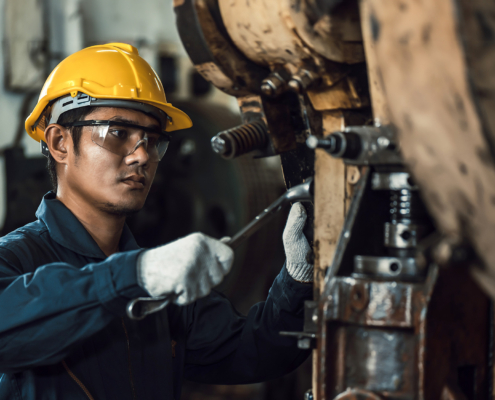
How to Develop a Quality Control Plan for Industrial Maintenance
Industrial Services (Quality Control), Maintenance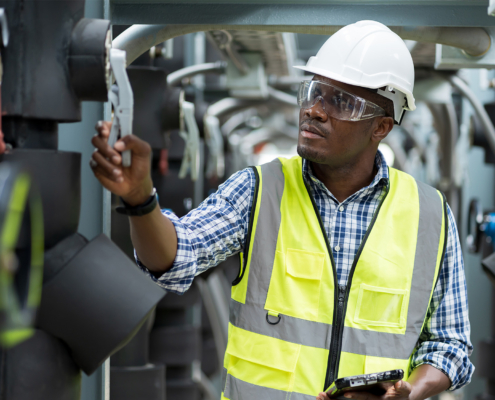
Understanding Industrial Maintenance Compliance Guidelines
Industrial Services (Maintenance), Maintenance
The Role of Technology in Industrial Maintenance Practice Innovations
Industrial Services (Maintenance), Maintenance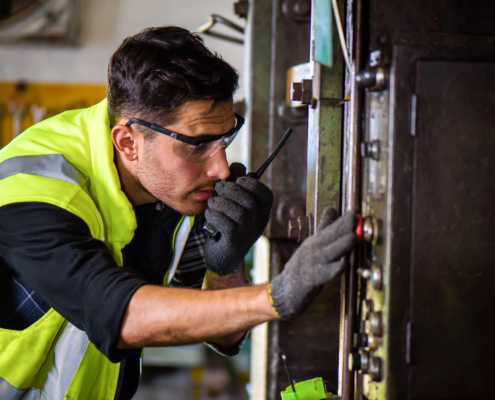
Factors to Consider When Choosing an Industrial Maintenance Provider
Industrial Services (Maintenance), Maintenance
Best Practices for Improving Industrial Maintenance
Industrial Services (Maintenance), Maintenance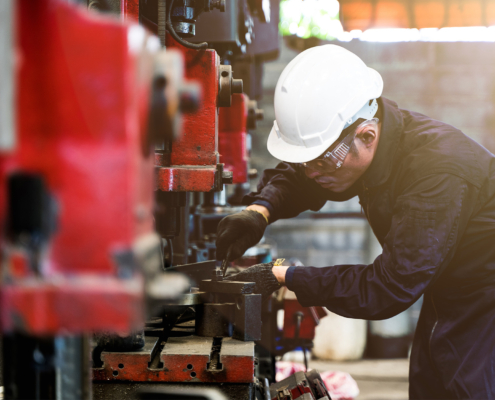
Exploring the Benefits of Routine Industrial Maintenance
Building Services (Maintenance Agreements), Maintenance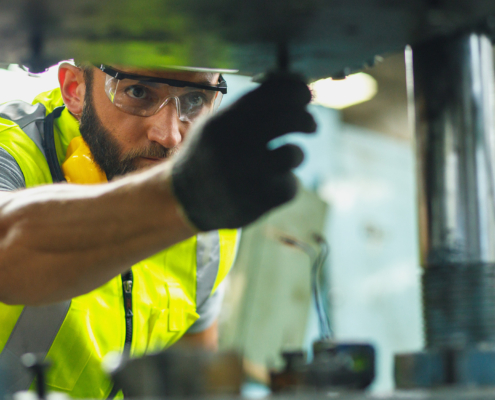
Your Guide to Industrial Maintenance
Building Services (Maintenance Agreements), Maintenance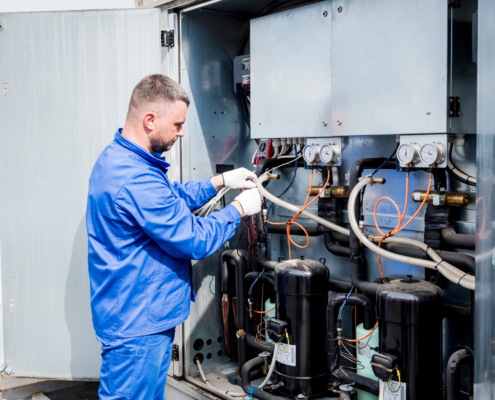
The Importance of a Commercial HVAC Maintenance Agreement
MaintenanceAbout Us
Smith-Boughan Mechanical has been servicing the Lima, Ohio, region with industry-leading mechanical design, fabrication, construction, and maintenance services since 1927.



